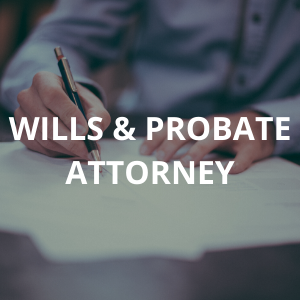
Looking for a Local Estate Planning and Litigation Attorney in New Jersey?
Work with Joseph Catenaro Jr. of Catenaro Law
an Estate Planning and Elder Law Attorney in Essex County NJ
Specializing in
Estate Planning | Wills | Trusts | Medicaid Planning | Probate
Areas of Practice
At Catenaro Law, we specialize in 4 practice areas: Elder Law; Estate Planning; Estate & Trust Litigation; and Probate & Estate Administration of Decedent’s Estates.
LOCATIONS SERVED
Serving clients in Essex County, including Fairfield, North Caldwell, West Caldwell, Caldwell, Cedar Grove, Roseland, Livingston and Nutley; Morris County, including Montville, East Hanover, Kinnelon, and Florham Park; Passaic County, including Wayne, Riverdale and Pompton Plains; Ocean County, including Toms River, Spring Lake, Whiting, Wall Township, and Red Bank.
Popular Services
Last Will and Testaments, Revocable Trusts, Irrevocable Medicaid Asset Protection Trusts, Advance Directives, Health Care Proxies, Powers of Attorney, and representation in Estate & Trust Litigation matters in the Superior Court of New Jersey, Chancery Division, Probate Part.
Estate Planning
We tailor estate plans to each client’s goals. Whether a client hopes to enrich the next generation, ensure financial security for their special-needs child, eliminate acrimony between children and spouses from a present or prior marriage, pass assets without being disqualified from medicaid, ensure they have a say at the end of their lives, or relieve family members from making that most difficult decision, Catenaro Law is the name you can rely on to ensure that your wishes and your future estate are handled competently, professionally and with compassion.
Probate
We assist executors & administrators in every step of the probate and estate administration process from getting a person appointed executor or administrator by the Surrogate’s Court, marshaling assets, paying debts, getting tax waivers, drafting release and refunding bonds, preparing accountings for final distribution of an estate. Dealing with the loss of a loved one is difficult enough. Whether your loved one passed with a Will (testate) or without a Will (intestate), let us relieve some of the burden and handle the estate work for you and your family.
Estate & Trust Litigation
We represent beneficiaries of estates and trusts, executors, administrators, trustees, surviving spouses, guardians, and incapacitated persons in estate, trust, probate & fiduciary litigation matters that include will contests, trust disputes, fiduciary accountings and guardianships. Our knowledge, experience, and reputation allow us to resolve high-stakes trust, estate, and fiduciary litigation matters through negotiation, mediation, arbitration or trial.
But perhaps the most important thing we provide is the good judgment and sound advice that comes from a rare combination of competence, compatibility and compassion.
FREE CONSULTATIONS - CALL 973-227-1310

SELECT THE AREAS OF PRACTICE

TESTIMONIALS

READY TO GET STARTED?
CONTACT CATENARO LAW
Get a FREE 30 Minute Consultation
We Look Forward to Speaking With You
Message Catenaro Law
Get in touch and if we feel we can help we’ll set up a complementary 30 minute consultation to review your case. Please note that you should not include any sensitive case details as filling out this form does not constitute an attorney client relationship.

FAQS
+ Urgent Need for Wills & Estate Planning
The pandemic has unquestionably encouraged individuals, many younger and who had never prepared a will, to start the process. In addition, clients who already have estate planning documents are requesting changes to their documents as a result of the pandemic.
+ Why Do I Need a Will?
Pretty much everyone should have a will. Without a will, state law will decide what happens to your property and assets, and who will be the guardian of your minor children.
+ What Makes a Will Legal?
Under NJ law, a will needs to be in writing and signed by the testator. It also needs to be signed by two witnessess who watched the testator sign the will. A notary is not technically required. However, unless the two witnesses and a notary sig an additional form making the will “self proving” either at the time of the execution or after the will is executed, the witnesses would actually have to got to the surrogate’s office after the testator dies.
+ What About Will Sold Online?
There are companies that sell will templates online, but using an online template is very risky. You should make sure an attorney reviews the will to ensure it was done properly and reflects the law in New Jersey.
+ Are Handwritten Wills Legal?
Yes. NJ recognizes handwritten wills, also known as holographic wills. Witnesses are not required for a holographic will but a handwriting analysis will likely be required to prove it was the decedent’s handwriting/signature. But these wills can be probated only by a court, which is more expensive than submitting the will to the surrogate.
+ What About Other Documents for Estate Planning?
In addition to a will, you should also get a general durable power of attorney, which allows you to designate someone to act on your behalf in financial and property matters if you are unable to do do This be signed by at least one witness and a notary.
+ How is Catenaro Law Dealing With Coronavirus?
At Catenaro Law, we are getting creative. While our staff works remotely because of the state’s state at home order, they’re using email, telephone calls and video technology to stay connected. When a document needs to be signed with witnesses and a notary, it gets complicated because NJ does not currently allow for notaries to act electronically. Accordingly, we’re keeping witnesses and the notary in different corners of the room, between glass, and clients are on the opposite side of the room.
+ What happens when you die without a will in NJ?
If you die without a will, or "intestate," your assets and estate are divided according to New Jersey's intestate laws. The Surrogate will determine whether or not an administrator needs to be appointed depending on the size of the estate.
+ What happens if you do not have a will and your total assets are less than $20,000?
If there is a surviving spouse and the property in the name of the decedent does not exceed $50,000, an Affidavit of Surviving Spouse may be issued by the Surrogate allowing the husband or wife to dispose of the property. When there is no spouse and the property does not exceed $20,000, a close relative can be issued an affidavit to handle the disposition.
+ What happens if you do not have a will and your total assets exceed $20,000/$50,000?
In this situation, the Surrogate must appoint an administrator. Before someone is appointed all other next of kin of the deceased must renounce their rights to be administrator. A surety bond must be posted. The property is dispensed to the next of kin, according to the law. However, in situations where there is no immediate family, your property may go to distant relatives or ultimately revert to the State.
+ How is my estate distributed without a will?
The laws of New Jersey state that:
- If you die leaving a spouse and children, who are also the children of the spouse, the spouse receives 100% of the estate and no bond is required to be posted.
- If you die leaving spouse and children of a prior marriage, the spouse receives the first 25% (but not less than $50,000. and no more than $200,000.) plus 1/2 of the balance of the estate. The children of the decedent share the remaining balance of the estate. If a child predeceased the parent and that child produced grandchildren, the grandchildren share the balance that would have been their parents share.
- If you die leaving spouse and no children, but are survived by a parent(s) the spouse receives first 25% (but not less than $50,000. and no more than $200,000.) plus 3/4 of the balance. Surviving parent(s) receive all other assets of the estate.
- If you die leaving child or children but no spouse, children will take equally. Grandchildren will take their deceased parent's share.
- If you die leaving no spouse or children, parent(s) will take all. If no parent survives, brothers and sisters of decedent will take equally. If a sibling predeceased the decedent then the nieces and nephews will take their deceased parent's share.
- If you die leaving a spouse and children and the surviving spouse has children from a previous relationship, the spouse receives the first 25% (but no less than $50,000. and no more than $200,000.)children of the decedent share the remaining balance of the estate. The stepchildren do not share in the estate.
- If you die leaving a surviving spouse and only step-children, the surviving spouse receives 100% of the estate.
- If you die without a surviving spouse who had children from a previous relationship and you have no other descendents, such as parents, siblings, grandparents or other direct descendants, the step-children share 100% of the estate.
+ What is the Domestic Partnership Act?
The DPA provides that domestic partners will have the same rights as married couples concerning inheritance, if the decedent does not leave a Will. It also provides that a domestic partner shall have the same rights as a surviving spouse with respect to the decedent's funeral and disposition of the decedent’s remains. The law provides that two persons who desire to become domestic partners may execute and file an Affidavit of Domestic Partnership with the local registrar and meet all other requirements. Please contact our office for additional information and requirements.









